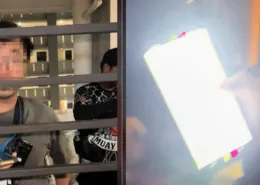Costa Rica’s Constitutional Court Orders Health Ministry to Regulate Vape Law Within Two Months
The Constitutional Court of Costa Rica has issued a directive to the Ministry of Health, granting them two months to implement regulations for Law 10.066. This law governs the use of electronic nicotine delivery systems (ENDS), non-nicotine systems (NNDS), and electronic devices that utilize heated tobacco and similar technologies, collectively known as vapes.
Court’s Decision
On Friday, June 14, the Constitutional Court ruled in favor of an amparo appeal filed by attorney Walter Brenes Soto on May 24. The resolution, numbered 2024016580, highlighted the need for immediate regulatory action.
Brenes contended that despite the publication of Law 10.066 in La Gaceta on January 20, 2022, the absence of regulatory measures for over two years infringes on fundamental rights. The court concurred with Brenes and ordered the Ministry of Health to establish the necessary regulations within a two-month period starting from the date of notification.
Delay in Regulation
After the law’s publication in 2022, the Health Ministry was allotted three months to draft the necessary regulations. However, the Ministry cited delays due to the need for input from other public institutions and the transition period following a change in government. These reasons were presented to the Constitutional Court by Deputy Health Minister Allan Mora Vargas and documented in case file 24-013568-0007-CO.
The Ministry’s report indicates that the proposed regulations for Law 10.066 are ready and currently awaiting review by the Directorate of Laws and Decrees at the Presidential House. Once reviewed, the regulations will be signed by the president and published in La Gaceta.
Importance of Regulation
In their review, the Constitutional Court emphasized the significance of these regulations for the health rights of Costa Ricans. The Court stated that “the failure to regulate constitutes an omission that can be declared in this constitutional jurisdiction.”
La Nación reached out to the Ministry of Health for comments on the Court’s resolution. The Ministry responded, through its press office, affirming its diligent efforts in defining the regulations and its commitment to comply with the resolution. The proposed regulations have been under review at the Directorate of Laws and Decrees since May.
Controlling Vaping Risks
On May 14, the Ministry of Health issued a resolution to ban the import, use, sale, and commercialization of synthetic nicotine products. This measure aims to mitigate the health risks associated with vaping, particularly among minors.
Health Minister Mary Munive Angermüller explained that the Ministry exercised its authority and precautionary principle to prevent further harm to the population. Evidence suggests that devices being sold in Costa Rica contain nicotine levels exceeding those set by European standards.
Resolution MS-DM-RC-2381-2024 also prohibits the distribution, advertising, promotion, and sponsorship of these products and their accessories. This includes any method of consumption and administration, as well as vaping liquids containing cannabinoids.
The ban applies to all types of establishments, whether via phone, digital platforms, or other means of access to these devices and substances. This measure will remain in effect until the Ministry of Health promulgates the technical regulations to govern these products, expected to be finalized by the end of 2024, according to Minister Munive.
Source: Sala IV da dos meses a Salud para reglamentar ley sobre vapeadores
- Bestselling Vapes in UK After Disposable Ban: What to Stock 2025 - August 8, 2025
- Argentina Debates Stricter Vape Laws Amid Prohibition Failures - August 8, 2025
- Nigeria Advocacy Group Urged to Hike Tobacco & Vape Tax by 100% - August 8, 2025








